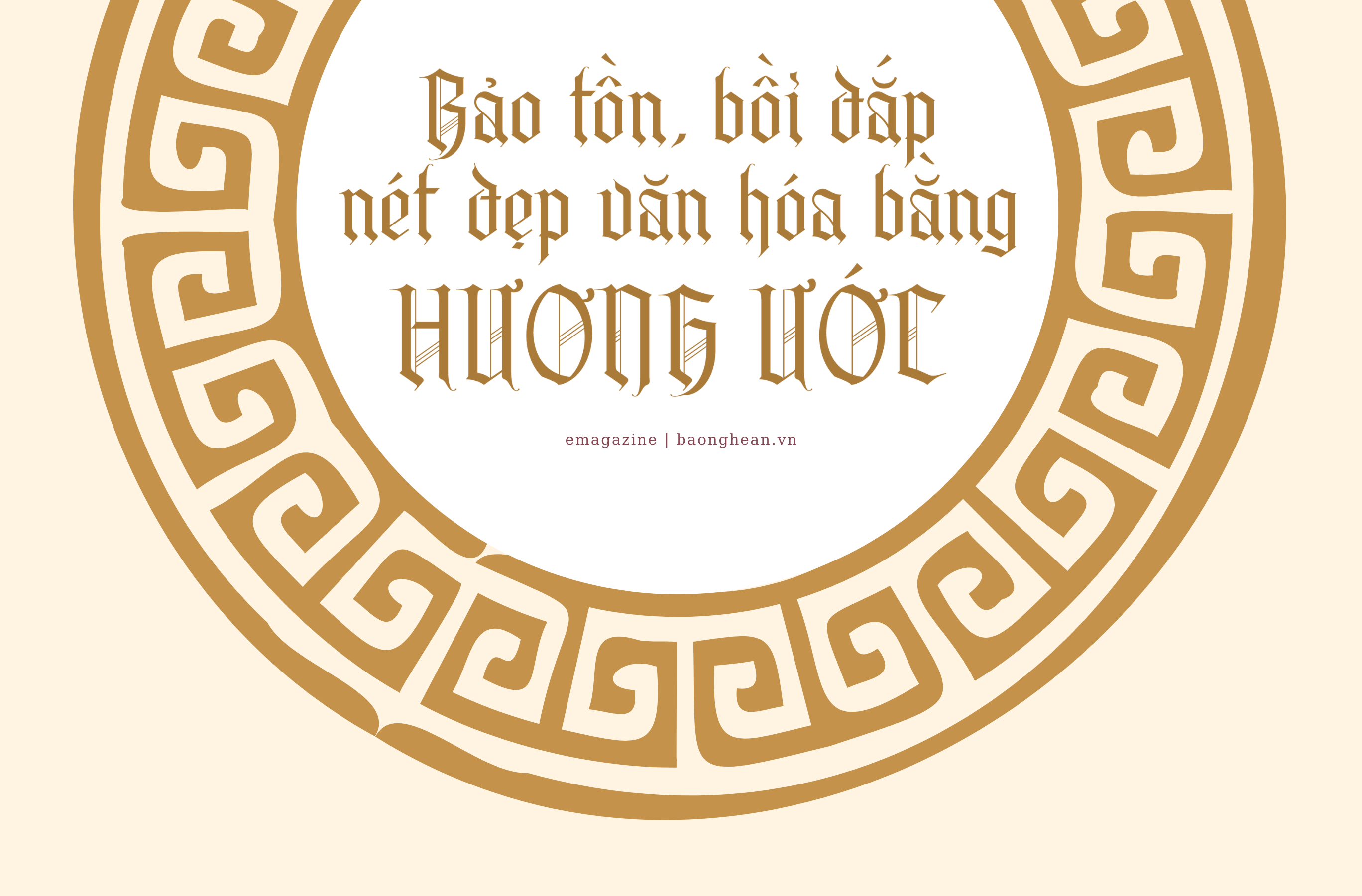
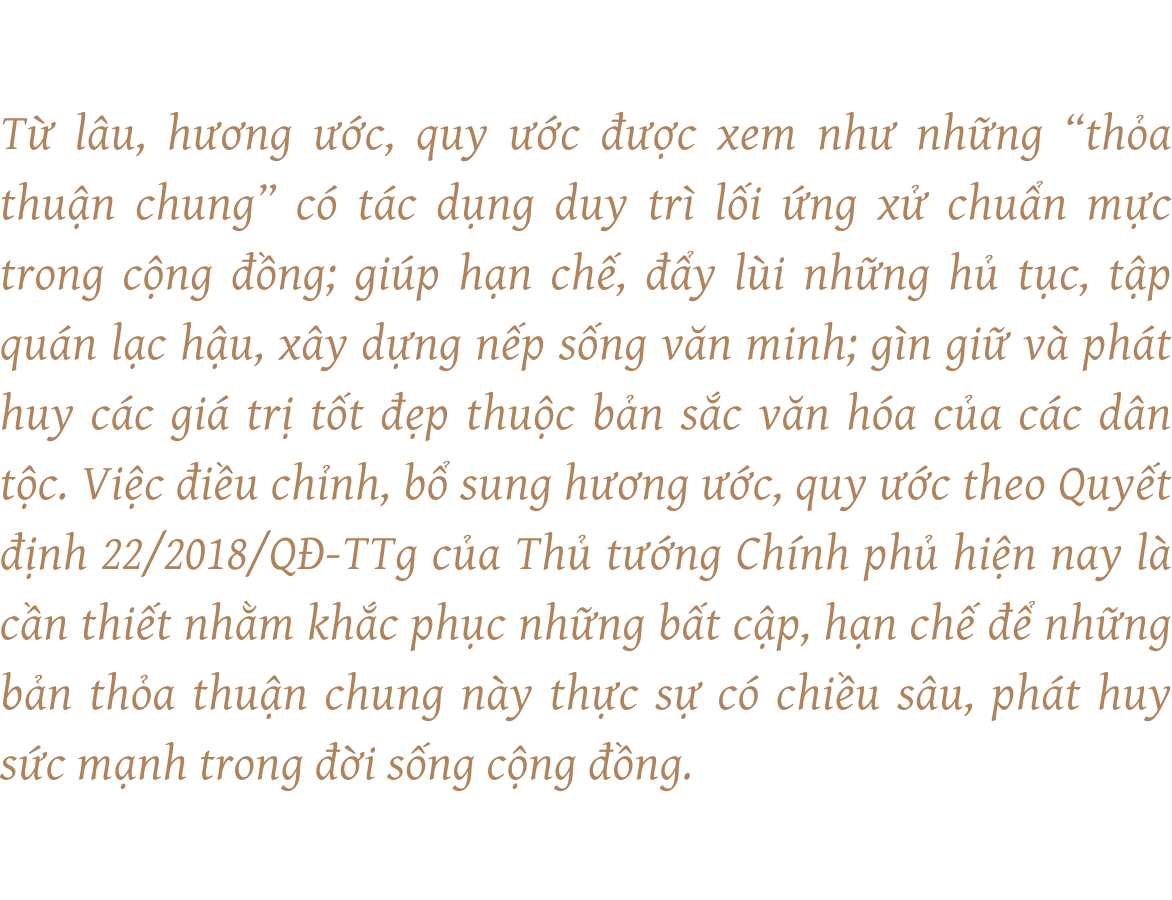
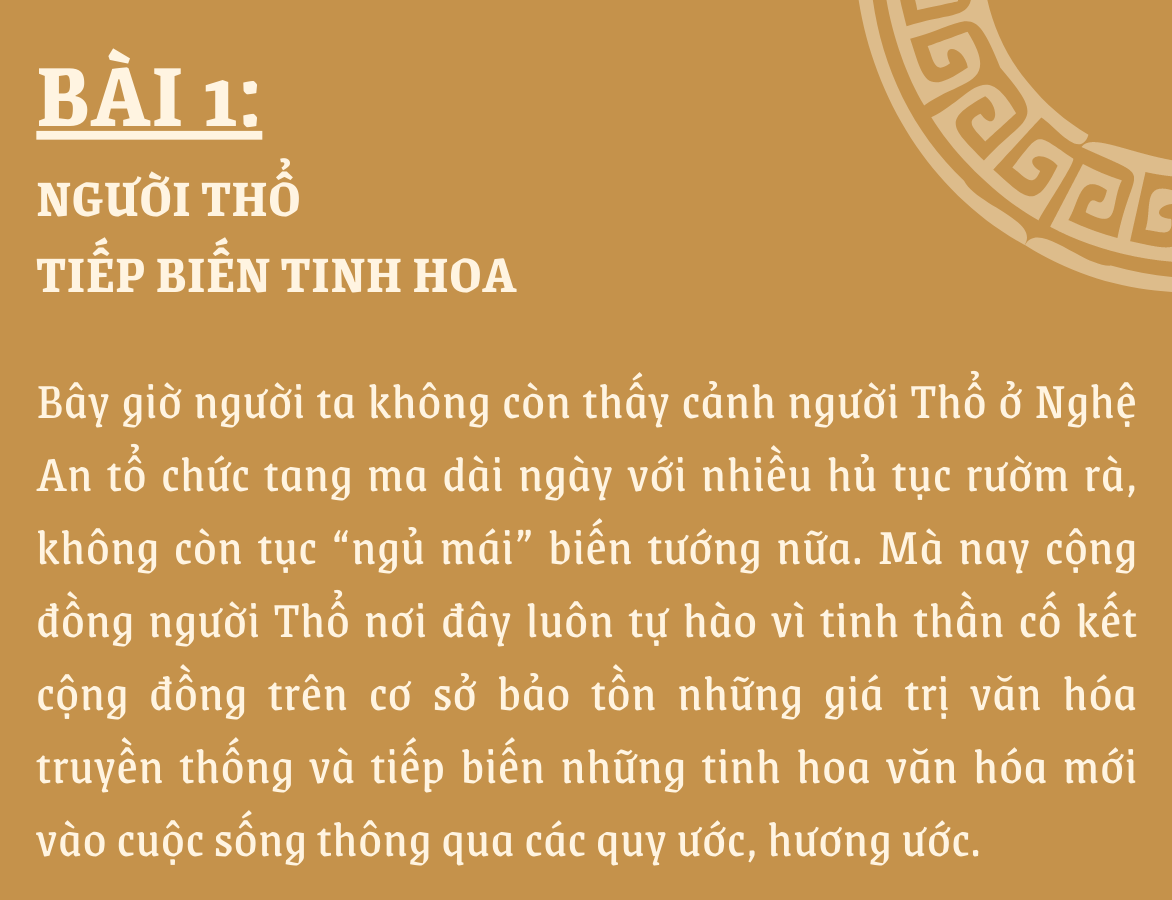

The winding road leading to Coc Mam Hamlet, Tho Hop Commune, Quy Hop District has now been paved with smooth asphalt, with houses lining both sides of the road. Coc Mam has a beautiful location, its back leaning against the mountain, its face facing the river. The Tho people in Coc Mam have long been known as hard-working people, loving and caring for each other in times of need.
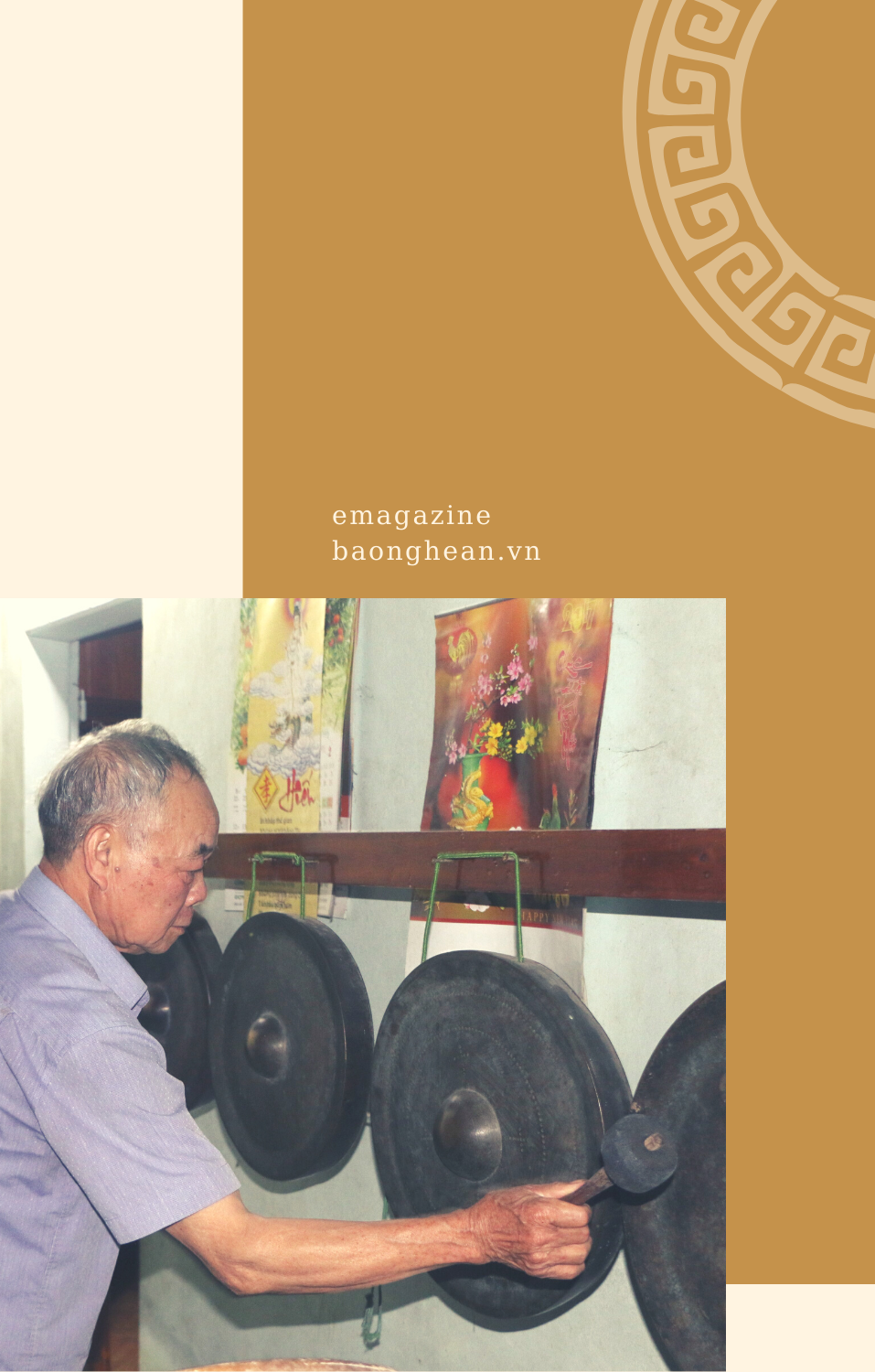
Ms. Nguyen Thi Kim Chi - an officer of the Department of Culture of Quy Hop district, who has been associated with the Tho people here for more than 30 years, shared: The Tho people here practice the craft of weaving hemp hammocks, which has been passed down from generation to generation, a cultural beauty and a source of pride for every resident in Coc Mam. Along with the hammock weaving loom, the folk songs of the Tho people are also born and resonate forever, inspiring the community here to unite, love each other, overcome difficulties and rise up in life.
One of the prides of the Tho ethnic group is the sound of gongs. The head of Coc Mo hamlet shared: The hamlet's gong team is very well-trained. Everyone can play the gong, everyone can dance to the sound of the gong whenever there is an event. To maintain the cultural identity of the community, our village's convention clearly mentions the preservation and conservation of the cultural identity of the Tho people and pays special attention to preserving the gong tune, because now young people go far away, children have many entertainments, if there are no conventions for the people to be proactive in organizing activities, it is easy to be lost. From the convention, now in our Gong Club we have members from 10 years old to 80 years old. On every occasion of holidays, New Year or special ceremonies of the Tho people such as the New Rice Festival, Boc Mo festival, people gather around jars of rice wine and the sound of gongs and gongs resonate passionately.
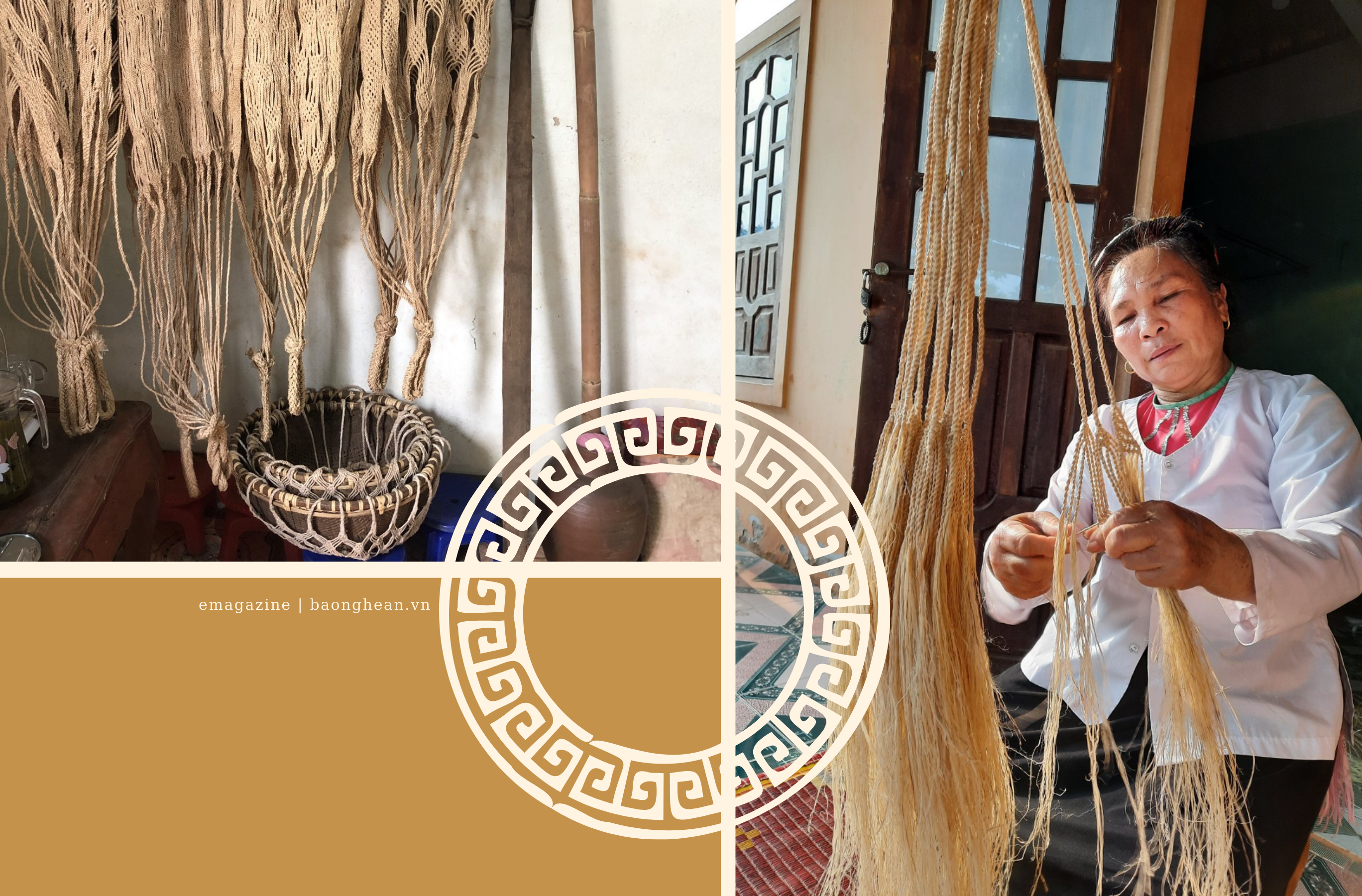
Like Tho Hop commune, Nghia Xuan commune, Quy Hop district is making efforts to implement the resolution on preserving and promoting ethnic cultural values in the area. Nghia Xuan has 52% of Tho ethnic people. In recent years, the government and people of Nghia Xuan have made efforts to restore festivals and handicraft villages such as the Gong Club, Tho ethnic folk song club, Boc Mo festival, Ba Chua Mo festival at the village's citadel, and build a weaving craft village.
Currently, in Quy Hop district, nearly 30% of the Tho ethnic people live concentrated in Tho Hop and Nghia Xuan communes... For many years now, with the efforts of the Party Committee and local authorities, 100% of hamlets with Tho ethnic people have had village covenants and conventions clearly stipulating the restoration, preservation and promotion of the beauty in the cultural identity of funerals, weddings, festivals, and folk songs.

In modern life, somewhere in the communes of Nghia Xuan, Tho Hop (Quy Hop) and the Tho people residing in Tan Ky and Nghia Dan districts, there are still groups of men and women participating in "sleeping roof". This is a long-standing cultural feature of the Tho people. According to this custom, when they reach marriageable age, after getting to know each other, boys and girls invite each other to go out, especially on the full moon night. With the permission of the girl's family, the boy goes to "sleep roof" at the girl's house - the person he chooses to get to know. During the night of sleeping roof, boys and girls have the right to freely confide in each other in a healthy way.
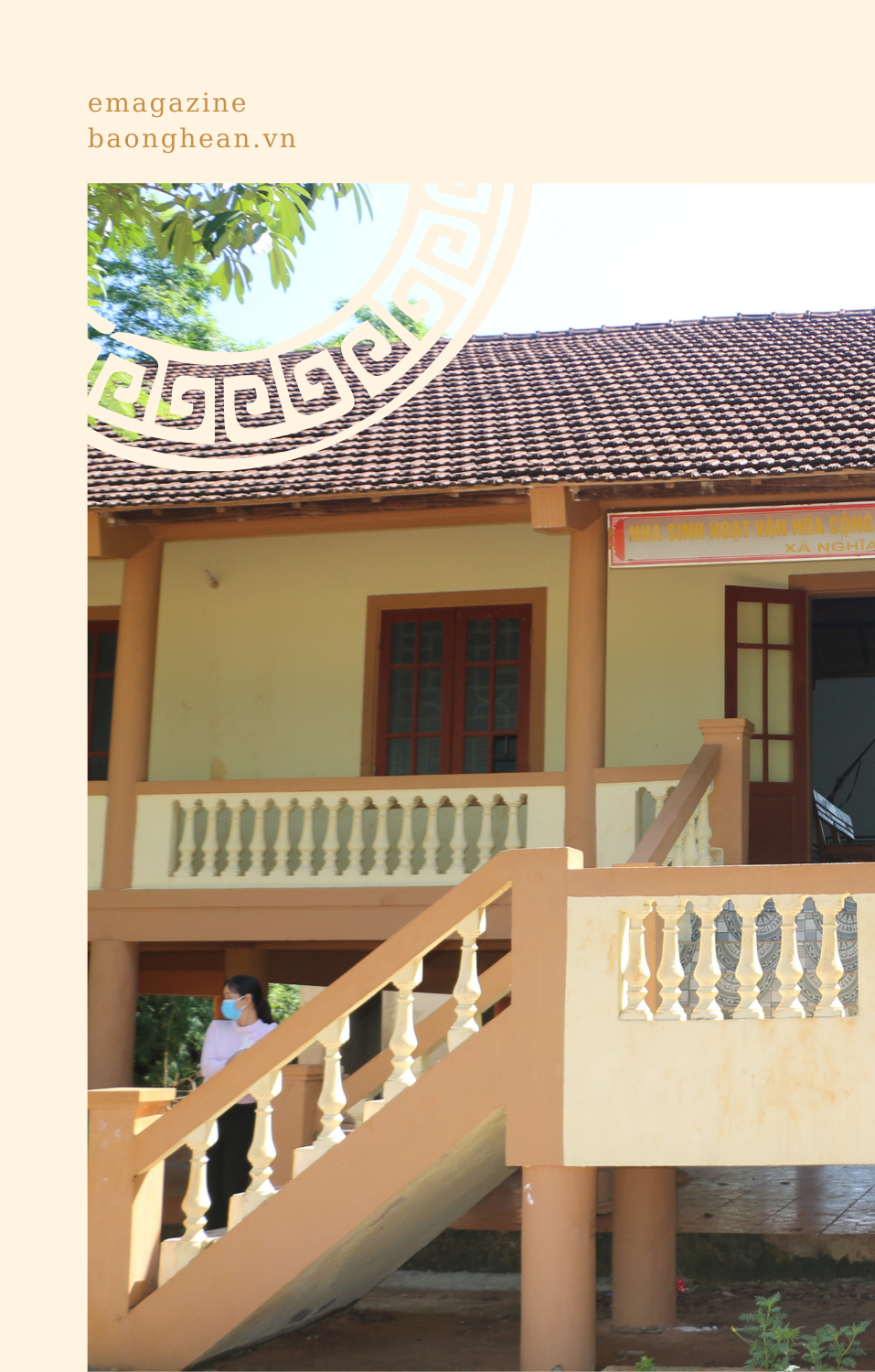
The Tho ethnic people in Quy Hop said that "sleeping on the roof" is not necessarily done in pairs, but often there are many couples who, with their parents' consent, come home to talk and get to know each other, then sleep together on the floor. After the night of "sleeping on the roof", if the boy and girl agree to get married, the family will ask a matchmaker (Mr. Pin), then there will be regular visits, then the engagement and marriage request... "For a while, the custom of "sleeping on the roof" has been distorted and is no longer suitable, so in the newly built village covenants and conventions, the District Culture Department has guided the communes to build village covenants based on Resolution No. 05-NQ/TU dated December 14, 2016 of the Provincial Party Committee on building cultural people and cultural families of Nghe An to meet the requirements of integration and development. In addition, wedding customs have also been improved in a minimalist direction but still retain the cultural features of the people", said Ms. Vi Thi Giang - Head of the Department of Culture and Information of Quy Hop district.
Accordingly, the wedding ceremony of the Tho people can only be held within 1 day without the slaughter of chickens, pigs, and cows. There is no extravagant dowry of 3 buffaloes and 2 pig heads as before. This received the consent of the people and soon after, the village covenant entered life in the most natural way.
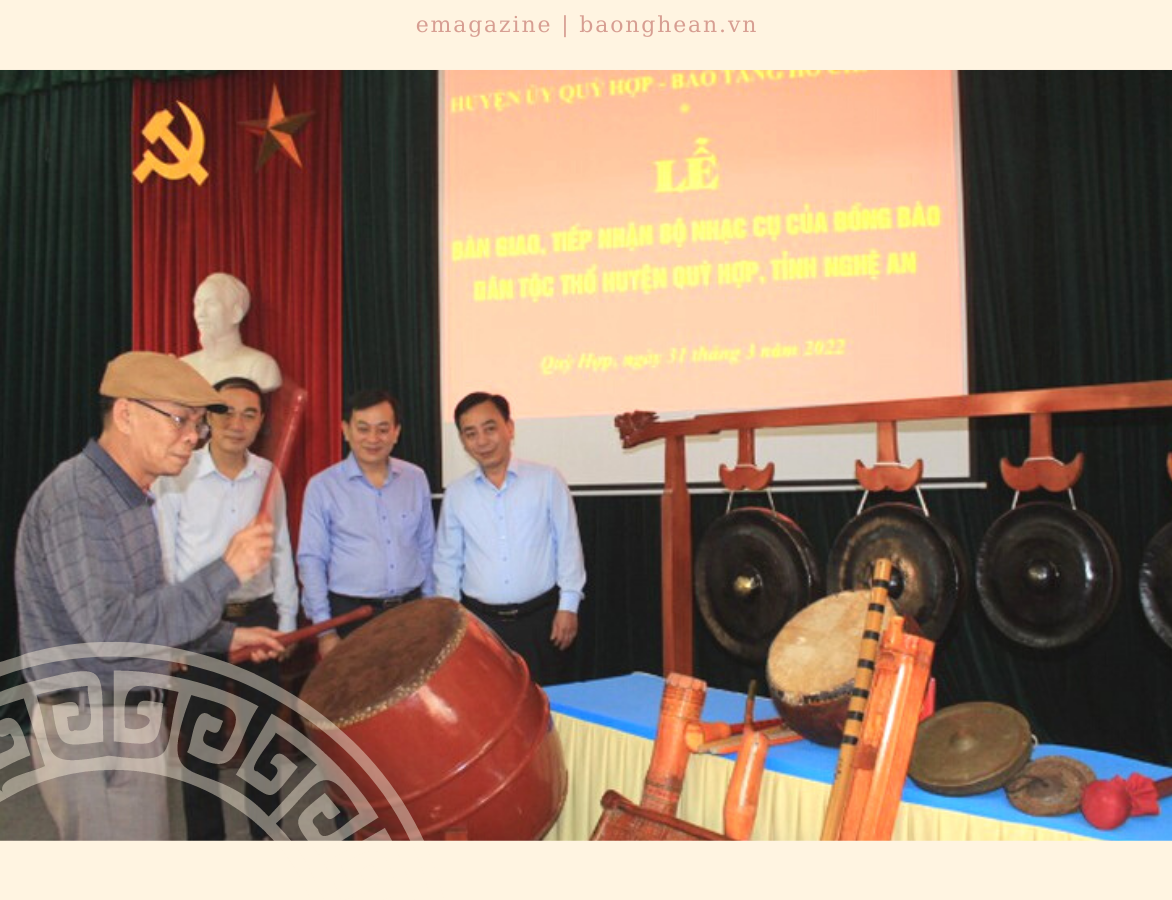
Cultural traits considered bad customs of the Tho people in funerals have also been eliminated, typically the custom of lying on the street in funerals. Talking to us, Ms. Nguyen Thi Khanh Linh, born in 1983, a cultural officer of Nghia Dan district, also a Tho ethnic person, shared: In the past, whenever a family had a funeral, it had to wait for 3 days and nights. When sending them off, the children had to lie on the street. Wherever the coffin went, the children had to lie underneath until the burial place. At that time, we were still young, so whenever a family had a funeral, we went out to the street to watch. The family with the most children "lying on the street" the longest was considered the most attentive to the deceased.
However, nowadays, the custom of “lying on the street” has been almost eliminated. The practice of leaving the deceased in the house for 3 days and 3 nights is no longer practiced. According to our survey, the village and hamlet regulations of the Tho people stipulate that funerals cannot be left for more than 48 hours, and bad customs such as lying on the street or ostentatious worshiping have been eliminated. “Although many village elders and many Sha men still believe that abandoning that ritual means losing the typical filial piety of the Tho people. However, most of the people, especially the younger generation, believe that cultural identity does not mean maintaining bad customs,” said Ms. Khanh Linh.

(To be continued)
